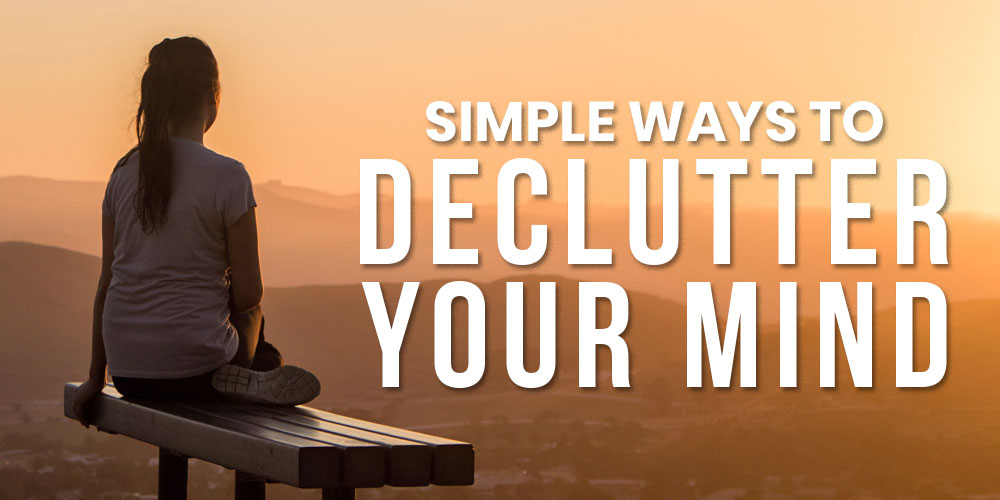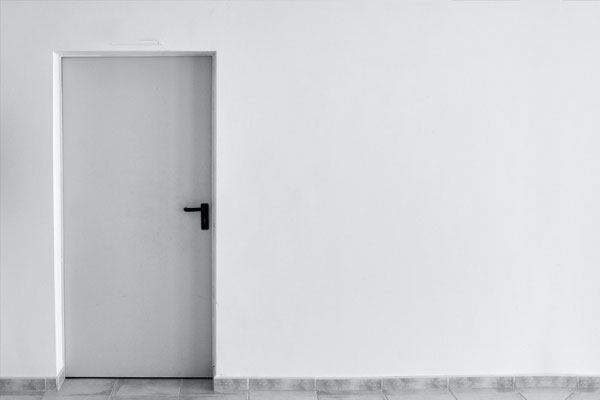
12 Tips To Declutter Your Mind
Does your brain feel chaotic and weighed down day in and day out? A cluttered brain is a core source of stress, distraction, overstimulation, disorganization, and an inability to be present in your own life.
Mental clutter prevents you from making decisions, staying focused on your goals, being productive, and setting direct priorities. Let’s look at 12 easy tips to declutter your mind and get back to yourself.

Hi, I’m Ryan
Mental clutter can be just as disruptive as clutter in your physical spaces. Getting in the right headspace can pay dividends for your mental wellbeing and in your ability to live mindfully.

1 Set Priorities To Conquer Your Day
Figuring out what matters most to you is the first step in removing the unessential noise. Setting clear priorities can help you declutter your mind by helping you separate important tasks from the ones that don’t quite matter as much.
 Get a piece of paper and a pen and list out your top priorities. What matters to you? What long term goals do you want to set? Getting these priorities written down on paper is the first step to bringing them to fruition.
Get a piece of paper and a pen and list out your top priorities. What matters to you? What long term goals do you want to set? Getting these priorities written down on paper is the first step to bringing them to fruition.
You can also apply this tactic to your daily workload. Prioritize your to do list each day by importance in order to finish high-value tasks.
I try to do this every morning before I start working on anything to get my head in the right place. Since I’ve already identified a reasonable amount that I know I can take on, there’s less shame when I don’t make it to the lower items on the list.
2 Start A Journal, Experience Catharsis
Journaling is a cathartic practice that allows you to organize your thoughts and explore your feelings. Get a journal in a style you love, crack the spine, and just start writing — it’s that simple.
 The habit if journaling is proven to help manage stress, decrease mental clutter, combat intrusive thoughts, and be therapeutic for those who suffer from depression and anxiety.
The habit if journaling is proven to help manage stress, decrease mental clutter, combat intrusive thoughts, and be therapeutic for those who suffer from depression and anxiety.
I’m more analytical than contemplative myself, so I’ve found the practice of bullet journaling to be extremely helpful for my own mental clarity.
It combines those left and right brained functions into one reflective yet highly productive habit. But there are endless types of journaling and reflective writing that can help you declutter your mind.
3 Learn To Meditate And Breathe
The act of meditating and focusing intentionally on your breathing can serve as a stress reliver, increase concentration, reduce confusion, improve focus and attention, and reduce distractions.
Meditation and breathwork are different from one another. Meditation involves observing your breathing and your mental state without manipulating them, whereas breathwork is the practice of altering your breathing with the goal of improving your mood.
Both meditating and working on your breathing can help you declutter your mind and bring increased tranquility into your life.
4 Get Quality Sleep Every Night
In order to think clearly, restful sleep is a must. Seven to eight hours of quality sleep each night is recommended to improve memory and focus during the day.
I try to make a habit of prioritizing my sleep even when it feels impossible because I know my mental clarity depends on it. Even though I’m the founder of a company and sometimes work 80 hours or more in a week, I know it’s important to get rest and put my health first!

5 Declutter Your Home and Work
When your home or work environment is cluttered, it affects your clarity of mind, ability to focus, and productivity and efficiency levels.
Decluttering the chaos in your physical surroundings can help you declutter your mind. Get rid of non-essential items, organize your work space, declutter your bedroom, and give each of your items a proper place.
I’ve found this to be extremely true in my own work life. Employing simple organization practices each day doesn’t only give me a clean environment to get work done, it genuinely improves my mental clarity and empowers me.
6 Practice Being Decisive Each Day
Typically, the possible backlash from making a decision is pretty low risk, so why let small choices weigh you down?
Imagine you’re standing next to a door, and that door swings both ways. You know that the cost of being wrong isn’t fatal and is a low-level risk, so just go through the door.
The key to removing mental clutter is to stop procrastinating decisions. Take action and just start.

7 Work To Limit Your Media Intake
It’s no secret that overconsumption of media can increase depression and loneliness in one’s life and cause mental clutter. The trick is to stay informed while not being consumed by the news cycle. From time to time when I’m feeling out of balance, I’ll take a break from social media to help me get back to feeling grounded.
Like many, I have people constantly vying for my attention, so I have to be conscious about my online presence. I try to do simple thigs like take breaks, automate where I can, establish strong boundaries, and block off time in my schedule for focused work.
8 Exercise Increases Mental Clarity
It’s hard to stay motivated to move, but the trick is to find a style of exercise that works for you. I like to take a walk in the middle of the day or at night before I get ready for bed. It helps me clear my head and move my body.

9 Take A Break, You Deserve It!

Turn off your phone and laptop, put down your pen and paper, and step away from your to do list for a bit, even if you can only afford to do so for five minutes.
Take time to do something that makes you feel happy and fulfilled. Maybe that’s painting, spending some time in the sun, doing stretches, or curling up in bed and reading your favorite book. There are many easy ways to incorporate satisfying breaks into a busy day.
10 Spend Time In Outside With Nature
Nature is directly associated with mental health and lifestyle benefits. Many studies have presented reasons why soaking up the sun or being amongst the trees is healing for your mind and body.
Time outside is a natural relaxer, decreases mental clutter and anxiety, benefits physical health, improves mood, and increases mental clarity.
Take some time each day to go on a walk in your neighborhood, ride your bike, or simply sit outside. Your brain will thank you!
11 Learn To Say No, Be Kind But Firm
We live in a YES culture. But the secret no one tells you is that you don’t actually have to do it all — you can say no. Learning to say no and drawing boundaries demonstrates maturity and self-awareness.
Practice screening against these criteria:
- Will doing this bring me closer to my goals?
- Will this bring me energy or sap it?
- If I say yes, what else am I saying no to?
- Do I have time to take this on?
- Does this activity represent what I value?
- Do I like the people I would do this with?

I get a lot of requests for my time, and I often say no. My go-to phrase is, “I can’t give this the time and attention it deserves, so I need to say no.” This shows that I gave the request genuine consideration and value the other person’s time as well as my own.
People often worry about saying no and making others mad, but I’ve found that if you are kind yet firm when declining, people are usually understanding.
12 Know Your Limits And Act On Them
Knowing your limits can help you maintain mental clarity. As an introvert, I have to identify when my social battery is drained. I also have to know how much bandwidth I have for monotonous verses creative tasks, and how much emotional baggage from others I can take on before I hit a wall.
Knowing your limits in all capacities is key to ridding yourself of that non-essential mental baggage.
Your Turn!
- What tips can you try to declutter your mind?
- What is bogging down your mind that you can address in your own life?





Leave a Reply